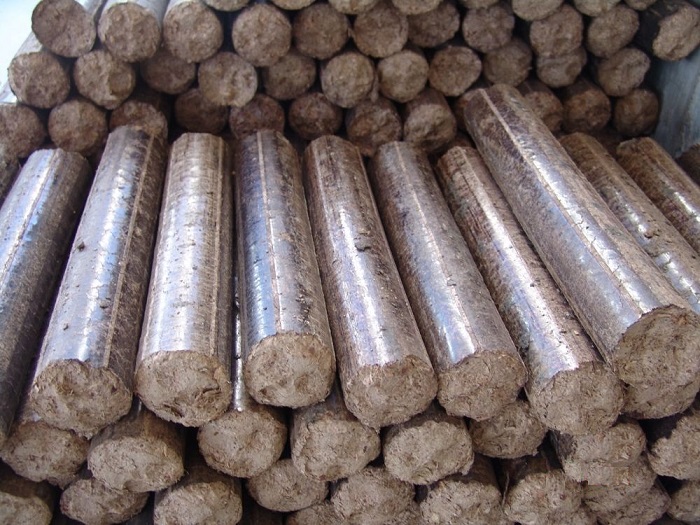WHAT ARE BRIQUETTES?
Briquettes are products obtained by mechanically compacting plant-based waste.
Briquettes can be produced from a range of materials, including:
|
|
Briquettes are firewood replacements, that is, they are a form of fuel.
They are an ecologically correct alternative to generates heat in furnaces and boilers.
Ceramics, meat-packing and food industries, hospitals, hotels, bakeries and pizzerias can employ briquettes in their processes.
Among the many benefits of briquettes are:
|
|
In terms of calorific value:
1 ton of briquettes = 4 m³ to 5 m³ of firewood
BRIQUETTES x FIREWOOD:
| Product | Type of waste | Greater calorific value [kcal/kg] | Specific weight [kg/m³] | Bulk weight [kg/m³] | Moisture content | ||
|---|---|---|---|---|---|---|---|
| BRIQUETTE | Rice husks | 3,800 | 1,100 | 650 - 700 | 12% | ||
| BRIQUETTE | Coffee husks | 4,100 | 1,100 | 650 - 700 | 12% | ||
| BRIQUETTE | Cotton waste | 4,300 | 1,100 | 650 - 700 | 12% | ||
| BRIQUETTE | Pine waste | 4,600 | 1,170 | 700 - 750 | 12% | ||
| BRIQUETTE | Sugarcane bagasse | 4,700 | 1,100 | 650 - 700 | 14% | ||
| BRIQUETTE | Hardwood waste | 4,900 | 1,200 | 750 - 800 | 12% | ||
| BRIQUETTE | Eucalyptus waste | 4,800 | 1,180 | 720 - 780 | 12% | ||
| FIREWOOD | Comercial wood | 2,200 a 2,500 | 600 | 350 - 400 | 25% - 30% |

